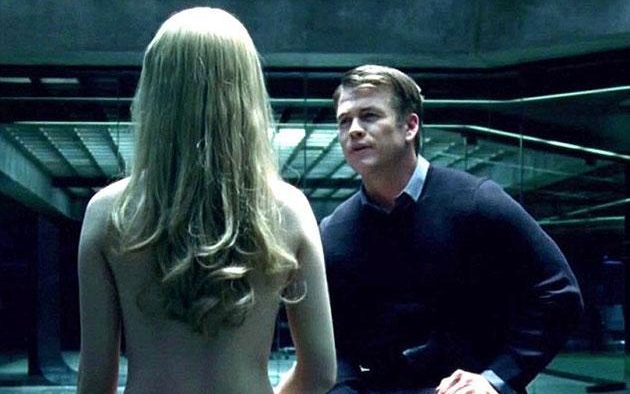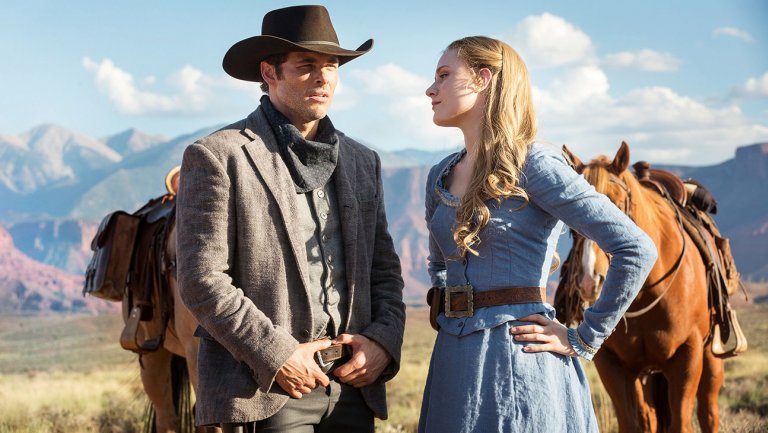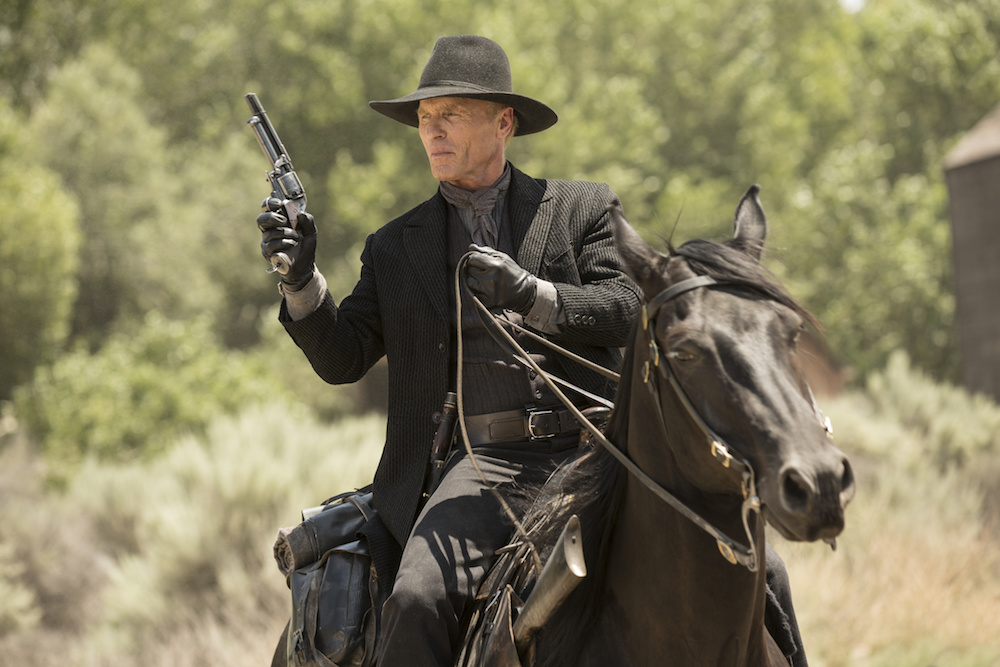“TV is a problem only if you’ve forgotten how to look and listen,” claims a university professor in Don DeLillo’s novel White Noise. He complains that his students are no longer open to the medium; they find television “worse than junk mail… They’re ashamed of their television past. They want to talk about movies.” White Noise was published in 1985, when television programs were regularly criticized for being formulaic, lacking real substance and focusing more on commercial success than artistic profit. In fact, television’s reputation as an artistic medium was so bad that, in 1996, the premium network HBO began running ads with their new slogan: “It’s not TV. it’s HBO.”
But now, the tables have turned. Personally, I have heard countless college students share viewpoints in perfect contradiction to the students in DeLillo’s book; they believe that film is dead, that television has been reborn. Avid fans of Game of Thrones and Mad Men will tell you; while Hollywood got hooked on commercially successful gimmicks like 3D superhero movies, television emerged as the premier platform for long-form storytelling. The “auteur” has been replaced by the “showrunner,” and art house cinemas are losing business to Netflix-streaming laptop computers.
HBO has long been fighting at the front lines of this television revolution. Oz, which debuted in 1997, was the network’s first long-form dramatic series, a dark story about life in prison that could be considered a forerunner in the push for weightier television content. Though Oz achieved little commercial success upon release, it paved the way for widely-acclaimed series like The Sopranos and The Wire. Then, unsurprisingly, the success of these high-quality dramas inspired imitations. The revolution that began on HBO spread across the television channels like static electricity. We saw Lost on ABC, then Friday Night Lights on NBC, followed by Mad Men and Breaking Bad on AMC. Fans and critics alike flocked proudly to their tubes; it was a new century, and the new content was no longer “worse than junk mail.” It was art.
But are we truly living in a “Golden Age” of television? Or is it a gilded age?
Though television may be better than it has ever been, I am too often disappointed by new series that turn out to be as formulaic as they are trendy. It is as if these shows are bouyed by the success of recent gems but still held to the low standards of classic television. This could be said of HBO’s most recent release, Westworld, a big-budget series that the network is banking on being the #NextBigThing. Though HBO’s Game of Thrones has maintained its army of followers, many of the network’s recent debuts—Vinyl, True Detective—have swallowed millions of dollars only to be cancelled in the prime time of their youth. For this reason, argues critic Emily Nussbaum in her New Yorker review of the series, Westworld “can’t just be good—it needs to be a hit, too.”
Unfortunately, Westworld, like those other eventual flops, blew its budget on flash to blind audiences to the sloppiness of its narrative. Critics should be the ones to remind us how to “look and listen” like DeLillo’s professor, to watch television with a critical eye. But for an array of reasons, critics like Nussbaum and the AV Club’s Zack Handlen are largely complacent in the inflation of the medium’s reputation. Though Nussbaum’s review of Westworld raises important questions about the show, it is ultimately as toothless as Handlen’s in its judgment.
Based on the Michael Crichton film from 1973, Westworld is an intriguing offering; the show follows an ensemble of characters involved in a fictional Western-themed amusement park where the wealthy guests can have their way—sexually and violently—with the artificially intelligent “hosts” that populate the expansive artificial frontier. The series is ambitious; it tackles the darker sides of entertainment and human nature, placing the AI robots in center frame and featuring most of the human characters as creepy executives or their bloodthirsty clientele. As the robots slowly gain awareness of their sad situation, they increasingly inspire our empathy; the poor things get shot, stabbed and raped until night falls and their memories are wiped for another day of human amusement.
“The show introduces itself as a science-fiction thriller about cyborgs who become self-aware,” writes Nussbaum, but “then reveals its true identity as what happens when an HBO drama struggles to do the same.” She argues that the series is an attempt at criticizing our sadistic enjoyment of sex and violence in the media, “an exploitation series about exploitation.” The show actually works though, argues Nussbaum, because of its “elegance” and the way it “gets under your skin.” She is not wrong; like its opening credits sequence—needled artificial ligaments and a shiny player piano—the show is often as unnerving as it is stylish.
Similarly, Handlen believes that the first episode of Westworld succeeds because it “never lets the horrors it depicts completely undercut a certain sense of wonder.” He discovers this sense of wonder in the hopeful robotic hosts, and also in himself as he puzzles over the mysteries of the amusement park. However, there is an important distinction to be made between elegance and wonder—while the former is a question of aesthetics, the latter is largely a function of plot. And the plot of Westworld creates a sense of wonder more through formulaic twists than through the emotive eyes of Dolores (the park’s “farmer’s daughter” attraction and the series’ main star).
Specifically, In order to build the foundations of a narrative that could last longer than the first episode’s ninety minutes, Westworld introduces layers of enigma that are clearly intended to reel audiences in without demonstrating any relevance to the rest of the story. For example, there is Ed Harris’ character, “The Man in Black,” who is searching for some kind of hidden objective within Westworld. Apparently, the only way to find this meta-game is to torture the robotic citizens until they divulge any relevant information—The Man in Black scalps a poor cowboy to find a maze hidden under his plastic forehead. Why should we, as an audience, care about this puzzling meta-game? It is not related to anything else that happens in the episode; the subplot only exists to develop a pervasive sense of conspiracy, as if beneath the main narrative there is something “bigger” going on. This tactic has been popular mostly in sci-fi and fantasy programs since Lost employed it to keep viewers intrigued for 121 cliffhanging episodes. The series constructed endless layers of mysteries while promising to reveal every secret, to eventually tie up each of its loose-ends. Spoiler alert: at Lost‘s finale, most of the series puzzles went entirely unsolved. If the generally held consensus is that a show is successful as long as it keeps audiences watching; I would argue that television succeeds only when a series keeps its promise to tell a complete and satisfying story. Lost‘s failure in this respect is enough to make me “wonder” about where Westworld is headed.
Though Handlen agrees that The Man in Black is “an element that doesn’t quite work,” the lack of real plot development only makes him nervous for the episodes to come. He perceives the pilot as a success even though it functions only as extended exposition, more like the first part of a riddle than the first chapter of a full story. I find this logic confusing, as you would never endorse a riddle without knowing its solution—one half is meaningless without the other. Although she is more hesitant to demonstrate outright support of the series, Nussbaum similarly advises that we keep watching.
Primarily, Nussbaum criticizes the show for making use of the same exploitation that it claims to denounce—patriarchal violence against women in entertainment tailored to straight men. This is a valid concern; social satire can be even more problematic than its targets when it takes societal flaws to extremes without delivering the message that they are, in fact, flaws. Nussbaum worries that Westworld rides dangerously close to this type of ambiguity. She asks, “Is Westworld the blinkered macho fantasy, or is that ‘Westworld’?” This is the kind of scalpel-sharp critique that is too often lacking in television criticism; looking past the face value of a show to dissect it under the light of a larger political framework.
But the way that Nussbaum follows her query reveals why serious critique of the medium can be so challenging: “It’s a meta-cliffhanger with its own allure,” she writes, “leaving us only one way to find out: stay tuned for next week’s episode.” Handlen makes a similar statement in his review, sharing that he is uncertain whether or not the story will be sustainable, but is “eager to find out.”
This is the paradox of television critique; a critic’s job is to swallow works of art whole, to digest them completely in oder to judge them fairly, but television is rarely complete. When a show has a strong following and commercial success, it can afford to close its narrative arcs and tell a whole story. But many series, like Lost, and probably Westworld, intentionally leave plot-lines soaring and mysteries unsolved so as to keep audiences hooked. How is a critic to judge a work that might be nothing but bait, that will only take off its mask after years of seasons have come and gone? Nussbaum and Handlen are somewhat critical of Westworld, but they hold their tongues in light of the fact that the series is only getting started, that their worries could be assuaged by future episodes. However, this position is insufficient, because future episodes will only exist if the audience responds positively to early episodes. In this way, television critics have their hands tied; they cannot fairly judge a show until it is finished, but still must play a role in whether or not that completion ever occurs. Netflix’s all-in-one season release model would help critics navigate this issue, but HBO has maintained its commitment to the classic episode-per-week trickle.
Moreover, the problem is only complicated by the fact that directors and writers are often shuffled between episodes and seasons—Westworld, for example, has had a unique creative team for each installment. Where does a singular work of television end and the next one begin? Handlen has written reviews of each Westworld episode one by one, becoming increasingly critical as HBO reveals more of its hand. “Spending hours showing us a curtain might hold our attention,” he writes in his review of episode five, “but sooner or later, you have to pull the curtain back.” Of course, penning piecemeal reviews like this limits a critic’s ability to judge the whole picture at once. On the other hand, Nussbaum’s review covers the first four episodes, an arbitrary number that is still too few to judge Westworld’s complete narrative, yet simultaneously too many to treat the episodes like individual works.
It is tempting to submit the movie Ex Machina as the converse of Westworld (the film about artificial intelligence is subtle where Westworld is exploitative and narratively-taut where the show is tangled). It is equally tempting to entirely dismiss the show because of the painful performances from two of its actors, Simon Quarterman and Sidse Babett Knudsen, who play important Westworld executives (while he overacts enough to make Anthony Hopkins seem like a robot, she comes off colder than the robots due to her monotonic attempt at an American accent). But to make such warranted criticisms would be unfair to an artwork that is still unfinished. There is only one way to find out the truth about Westworld, and that is to pay for an expensive premium network subscription and watch one episode each week until most fans lose interest and the series is canceled. Only then will it be finished and we can criticize fairly in retrospect. But do not be discouraged! We are lucky to be living in the Golden Age of television.





13,249 Comments
Wow, marvelous blog format! How lengthy have you ever been blogging for? you make blogging look easy. The full look of your web site is excellent, as smartly the content material! https://luongsontv1.co
เว็บสล็อตต่างประเทศ อเมริกา โปรโมชั่นสุดคุ้ม ฝากถอนรวดเร็ว มั่นใจ ปลอดภัย 100% เล่นเว็บแท้ จาก USA อันดับ 1 ของโลก สมัครสมาชิกเลย เล่นสนุก ลุ้นรางวัลใหญ่ โบนัสเพียบ สล็อตต่างประเทศ
Good Post, I am a big believer in writing comments on weblogs to let the blog writers know that they’ve added some thing of great benefit to the world wide web! 해외스포츠중계
I image this might be various upon the written content material? then again I still believe that it may be appropriate for nearly any form of subject subject matter, because it will continuously be gratifying to resolve a heat and delightful face or possibly pay attention a voice whilst preliminary landing. 먹튀
Hello there, I discovered your site by way of Google whilst searching for a related topic, your website came up, it seems to be good. I’ve bookmarked it in my google bookmarks. david hoffmeister
These is apparently just like definitely great. Most of these modest items are designed through the use of variety of base consciousness. I love these significantly. nitric boost ultra
All the contents you mentioned in post is too good and can be very useful. I will keep it in mind, thanks for sharing the information keep updating, looking forward for more posts.Thanks agen togel online
Just desire to say your article is as amazing. The clearness in your post is just great and i can assume you’re an expert on this subject. Fine with your permission let me to grab your RSS feed to keep updated with forthcoming post. Thanks a million and please keep up the gratifying work. US VISA FOR CHILE CITIZENS
Very good blog, I really like it, there is a lot of information that I can find here, well, I also want to tell you about the best games in the world, if you are curious about the game, just visit this website
World Famous Best Astrologer
It is a fantastic post – immense clear and easy to understand. I am also holding out for the sharks too that made me laugh. bandar slot gacor
As we progress into a more interconnected digital age, the need for genuine, face-to-face interactions remains paramount. Recognizing this essential human connection, Chatuss.com has evolved to become a premium random video chat platform. Random Video Chat
Clients marketing strategies that you choose to useful survey before establishing. It can be straightforward to jot down top-quality write-up like this. slot deposit 5000
That is furthermore a good submit that i actually appreciated studying. It isn’t each day that we hold the chance to find out one thing. SNAKE PIX
This method is actually aesthetically truly the most suitable. Every one associated with tiny illustrates tend to be meant by way of numerous history abilities. I suggest the program quite a bit. slot pulsa
Great survey, I’m sure you’re getting a great response. agenolx slot
I like your website plain and simple. Keep up the great work and I will keep coming back. david hoffmeister
That is furthermore a good submit that i actually appreciated studying. It isn’t each day that we hold the chance to find out one thing. slot pulsa
Wow! Such an amazing and helpful post this is. I really really love it. It’s so good and so awesome. I am just amazed. I hope that you continue to do your work like this in the future also agenolx
Think about this: Never put all your eggs in one basket. david hoffmeister
Your personal story touched my heart. It takes courage to share something so personal, and I admire your openness. I can relate tohttps://raja999.wine, and your insights have given me a new perspective.